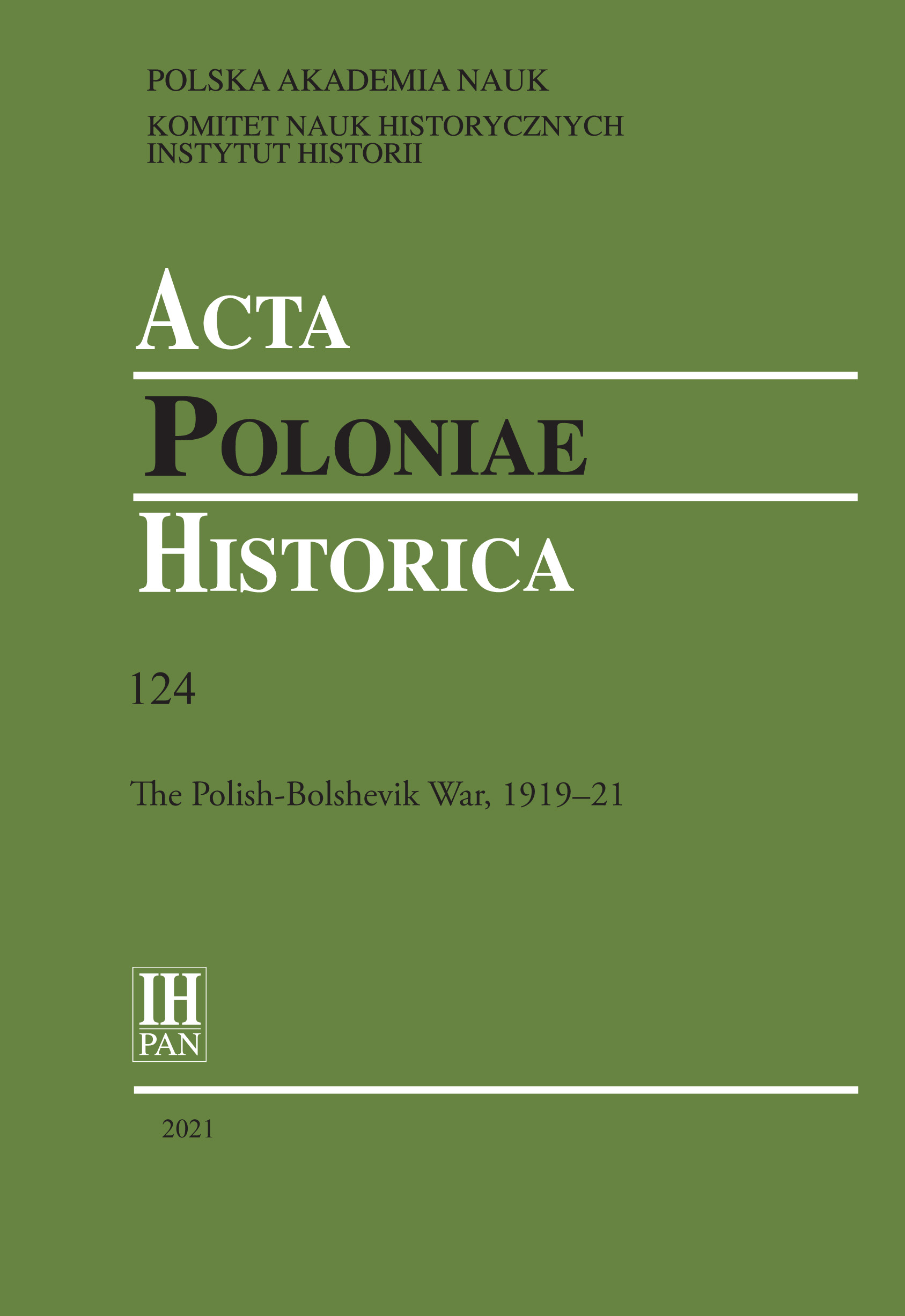Old Tales for a New Gens. Alberic of Trois-Fontaines’ Grafting of History
DOI:
https://doi.org/10.12775/APH.2021.124.06Słowa kluczowe
Cistercians, Semigallia, origo gentis, grafting, Geoffrey of Monmouth, TroyAbstrakt
Throughout the Middle Ages, waves of people came to the lands once been a part of the Roman Empire. At the same time, lands yet unknown encountered the successors of the Empire. These gentes sometimes preserved a long history of their paths to their new homelands. The Longobards, the Saxons, and many others had an origo gentis, where gods played an important role. These narrations were incorporated into a historiography that was almost entirely Christian.
This article is concerned with the methods used to find harmony between the past and present by Alberic of Trois-Fontaines when writing about the Semigallians. The narrative of their origins used established motifs and themes that made it possible to include the invented history of the gens into the then-established universal history. This was done through the etymology of names or the erudite use of the writings of other authors. These new gentes were grafted onto the trees of old tales.
Bibliografia
Alberic of Trois-Fontaines, ‘Albrici monachi Triumfontium Chronicon’, Paul Scheffer-Boichorst (ed.), in Chronica aevi Suevici (Hannover, 1874), 631–950.
Banaszkiewicz Jacek, Polskie Dzieje Bajeczne Mistrza Wincentego Kadłubka (Wrocław, 1998).
Beaune Colette, ‘L’utilisation politique du mythe des origines troyennes en France à la fin du Moyen Âge’, in Lectures médiévales de Virgile. Actes du colloque de Rome (25–28 octobre 1982) (Rome, 1985), 331–55.
Gawlas Sławomir, ‘Pytania o tożsamość średniowiecznych Polaków w świetle współczesnych dyskusji humanistyki’, in Sławomir Gawlas and Paweł Żmudzki (eds), Symboliczne i realne podstawy tożsamości społecznej w średniowieczu (Warszawa, 2017), 15–82.
Geary Patrick J., Before France and Germany: The Creation and Transformation of the Merovingian World (New York, 1988).
Geoffrey of Monmouth, The History of the Kings of Britain: An Edition and Translation of the De Gestis Britonum (Historia Regum Britanniae), ed. by Michael D. Reeve, transl. Neil Wright (Woodbridge, 2007).
Goffart Walter, The Narrators of Barbarian History (AD 550-800): Jordanes, Gregory of Tours, Bede, and Paul the Deacon (Princeton, 1988).
Kasperski Robert, ‘Ethnicity, Ethnogenesis, and the Vandals: Some Remarks on a Theory of Emergence of the Barbarian Gens’, Acta Poloniae Historica, 112 (2015), 201–42.
Levāns Andris, ‘Vertraute Geschichtsbilder. Die Entstehung historischer Vorstellungen von Livland in der Geschichtsschreibung des 13. Jahrhunderts’, doctoral dissertation (Rīga, 2014).
Pohl Walter, ‘Debating Ethnicity in Post-Roman Historiography’, in Helmut Reimitz and Gerda Heydemann (eds), Historiography and Identity II: Post-Roman Multiplicity and New Political Identities (Turnhout, 2020), 27–69.
Tamm Marek, ‘Les signes d’altérité. La répresentation de la Baltique orientale dans le De proprietatibus rerum de Barthélemy l’Anglais (vers 1245)’, in Outi Merisalo and Päivi Pahta (eds), Frontiers in the Middle Ages: Proceedings of the Third European Congress of Medieval Studies (Jyväskylä, 10–14 June 2003) (Louvain-la-Neuve, 2006), 147–70.
Williams J. H. C., Beyond the Rubicon: Romans and Gauls in Republican Italy (Oxford, 2001).
Wolfram Herwig, ‘Origo Gentis: The Literature of German Origins’, in Brian Murdoch and Malcolm Read (eds), Early Germanic Literature and Culture (Rochester, 2004), 39–54.
Pobrania
Opublikowane
Jak cytować
Numer
Dział
Licencja
Title, logo and layout of journal are reserved trademarks of APH.Statystyki
Liczba wyświetleń i pobrań: 1171
Liczba cytowań: 1



